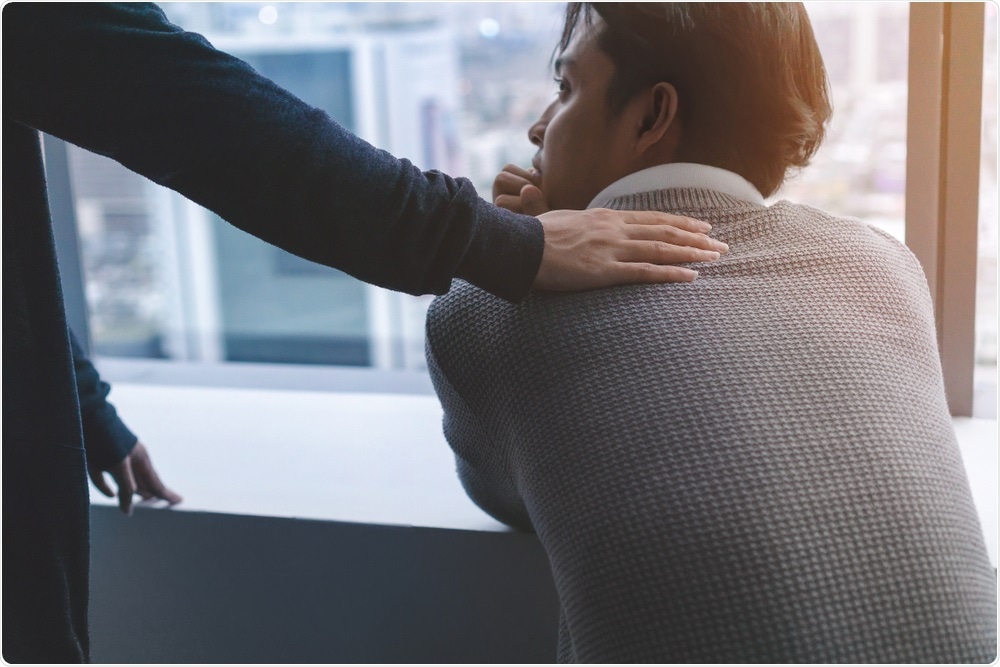Contracting the coronavirus disease (COVID-19), caused by the severe acute respiratory syndrome coronavirus 2 (SARS-CoV-2) can be a stressful and traumatic experience. Patients who became seriously ill with the viral infection should be screened for post-traumatic stress disorder (PTSD) due to their experiences in fighting for their lives, mental health experts recommended.
PTSD occurs in people who have experienced a traumatic event. The coronavirus pandemic can be a great deal of stress, particularly for those who were admitted and became critically ill due to the infection.
Psychologists and psychiatrists have urged the NHS to make sure that those leaving the hospital are screened and assessed regularly. Those who manifest symptoms of PTSD should undergo treatment to prevent recurring problems, such as nightmares.
The COVID Trauma Response Working Group, which includes mental health experts from King’s College London, University College London, Oxford University, the University of Haifa in Israel, and the NHS, said those who have been admitted in intensive care would have been seriously ill enough to develop PTSD, and urged the government for a national screening program.

Image Credit: Chanintorn.v / Shutterstock
What is PTSD?
PTSD develops in some people who have experienced a shocking, scary, or dangerous event, according to the National Institute of Mental Health.
Being afraid or fearful is a natural occurrence after a traumatic experience. Fear triggers many split-second changes in the body to defend itself from danger or to avoid it. In response to a scary situation, the body activates the “fight-or-flight” response to protect from harm.
In people with PTSD, they may feel stressed, scared, or anxious, even when they are not in danger. Most people with PTSD may experience symptoms within three months of a traumatic or stressful event. The symptoms may last more than a month and be severe enough to alter relationships, work, and daily activities.
The symptoms include flashbacks, racing heartbeat, frightening thoughts, bad dreams, fear of places that remind of the experience, feeling tense, having angry bouts, and loss of interest in enjoyable activities, among others. Getting early treatment is essential to reduce the progression of the condition.
PTSD after COVID-19 infection
The team published clinical guidelines to inform NHS clinicians and planners on how to address the mental health needs of COVID-19 survivors.
The health experts estimated that there could be tens of thousands of people at risk of PTSD due to the seriousness of their COVID-19 symptoms. More than 100,000 people have been admitted to hospitals due to the infection and the frightening experience may have taken a toll on their mental health.
“Given the very frightening and invasive nature of the Covid-19 critical care experience, the imminent risk of death and the potential for long-term medical complications, those most severely affected by Covid-19 are likely to be at high risk of developing post-traumatic stress disorder and other stress-related mental health difficulties,” Dr. Michael Bloomfield from University College London, said.
He added that some features or clinical manifestations unique to COVID-19 might negatively impact the mental and psychological health of patients. Some factors may also worsen psychological impacts, such as isolation from loved ones during and after hospitalization.
When patients do not seek medical help at the right time, it may lead to chronic conditions and recurring mental health issues.
The team also estimates that patients who experienced severe coronavirus symptoms, or those who have been seriously ill are at a high risk of mental health problems. Overall, up to 40 percent of people discharged from ICU report symptoms of anxiety, 30 percent report symptoms of depression, and 20 percent report symptoms of PTSD.
“There may be both an immediate impact on mental health and one that emerges over time. For example, rates of diagnosable mental health problems were present in up to 60% of survivors of SARS-CoV up to one year later. At 30 months, this had reduced to a third, including 25% with PTSD and 16% with depression. Survivors of other coronavirus outbreaks also report fear of stigma, of contaminating others, of contracting the illness again as well as chronic fatigue syndrome,” the experts wrote in the guidelines.
The team recommends that the NHS should actively monitor and provide immediate treatment for patients who survived COVID-19 for mental health problems, including depression, anxiety disorder, and PTSD. There should be a national “screen and treat” service to access as many patients as possible, including those in the communities. Also, patients who have fallen critically ill due to the novel coronavirus should have regular consultations for at least a year.